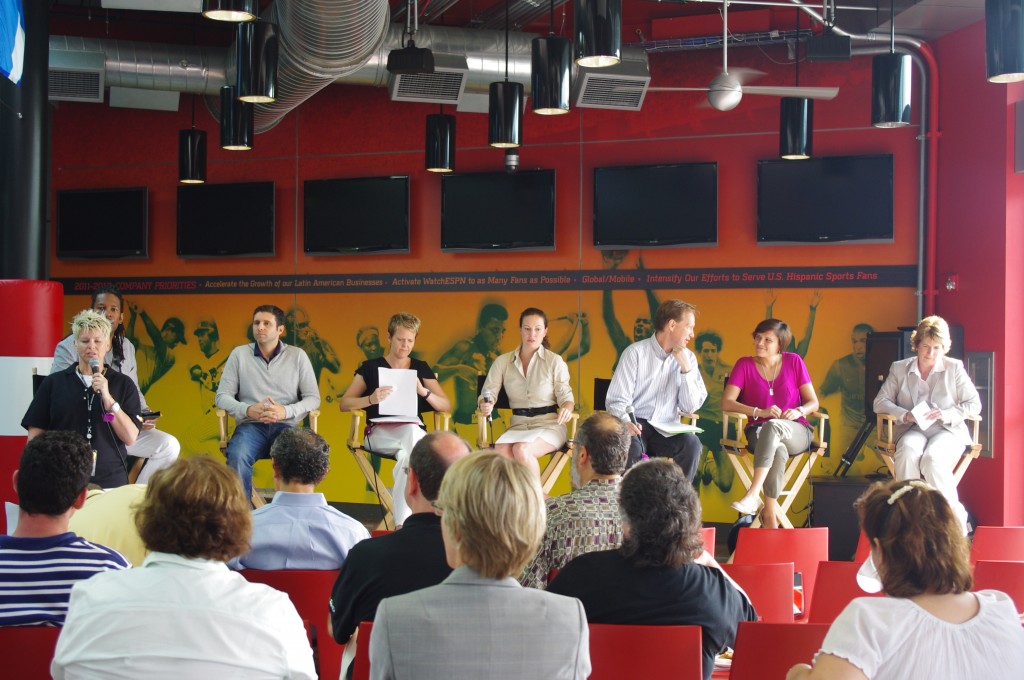An issue of PRIME concern
On June 24 2011, lawmakers legalized same-sex marriage in the state of New York.
A little less than a month later, ESPN’s Employee Resource Group (ERG) PRIME held a panel discussion with writers and editors of ESPN the Magazine‘s February 2011 article Unhealthy Climate.
The discussion centered around the controversial recruiting methods of women’s college basketball teams and the impact the tactics have had on female athletes both gay and straight.
Among those in attendance for the panel were Chad Millman, editor-in-chief of ESPN the Magazine, Carol Stiff, VP of Programming and Acquisitions, Women’s Basketball and the writers of the article, Luke Cyphers and Kate Fagan.
The article examined the impact of language used in women’s basketball recruiting, primarily the use of vocabulary that implies the other programs as being “gay” and not “family-oriented.”
“I played college basketball, and I just felt like having been around it I had seen what an issue it was and I just thought something should be done about it,” said Fagan.
It’s discussions like these that PRIME organizes to not only bring GLBT issues to the forefront, but also to bring together diverse groups of employees.
“One of the agendas for PRIME is to introduce the group to various platforms and key decision-makers so when they report on GLBT stories, they reach out to us as a resource,” said Christine Willis, president of PRIME.
PRIME has been in existence since the launch of ESPN’s ERGS three years ago. This past spring, PRIME organized a four-day GLBT film festival, showing GLBT-themed movies each night and having discussions afterwards.
“Creating and then nurturing an environment where people can be themselves benefits the company by removing the burden of hiding one’s true self, which takes time and energy away from doing your job,” said Willis.
It is this GLBT-friendly environment that ESPN strives to maintain for both its employees and consumers.
LZ Granderson, ESPN.com writer, GLAAD award winner and panel moderator adds: “We are the worldwide leader in sports, so we automatically claim a high level of credibility when we open our mouths.
“We are a pop culture institution as well, and when a company of this magnitude says this is an issue, it affects the culture outside of just sports fans.”








